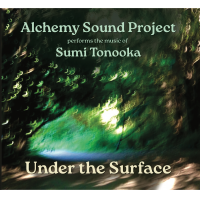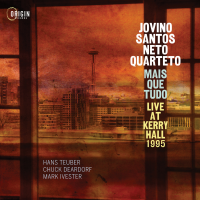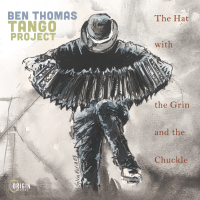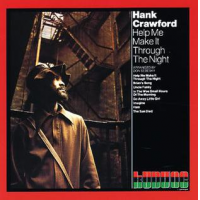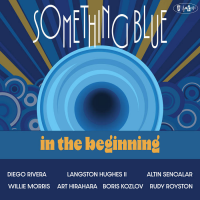Home » Jazz Articles » Liner Notes » Joe Pass: Meditation
Joe Pass: Meditation

Joe Pass
guitar1929 - 1994

Oscar Peterson
piano1925 - 2007
Even though jazz musicians, critics, and fans seemed united in their praise of Pass, he frequently appeared self-deprecating during interviews or while talking to an audience from the stage. He often told the story of seeing Gene Autry with a guitar and a horse in a movie at the age of nine, joking that "I wanted the horse but got the guitar." Though this amusing tale was likely shared with many unsuspecting interviewers over the years, there is no doubt that he became devoted to mastering the instrument at an early age. In spite of his waste of a number of potentially productive years battling drug addiction following a stint in the military, once he completed treatment at Synanon, he began to make his mark in jazz. A number of important dates as a sideman with

Gerald Wilson
composer / conductor1918 - 2014

Richard "Groove" Holmes
organ, Hammond B31931 - 1991

Les McCann
piano1935 - 2023

Count Basie
piano1904 - 1984

Duke Ellington
piano1899 - 1974

Dizzy Gillespie
trumpet1917 - 1993
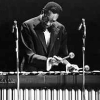
Milt Jackson
vibraphone1923 - 1999

Sarah Vaughan
vocals1924 - 1990

Zoot Sims
saxophone, tenor1925 - 1985

Stephane Grappelli
violin1908 - 1997

Ella Fitzgerald
vocals1917 - 1996
My one chance to hear Joe Pass in person came during the late 1980s at Atlanta's long-defunct Center Stage Theatre (he told me that he hardly ever played solo concerts in the southeastern US.). It is still very fresh in my mind nearly 15 years later (the admission price was only $5.00 and it included a separate set by

Jim Hall
guitar1930 - 2013

Ron Carter
bassb.1937
He told me that he always worked without a planned set, preferring to spontaneously conjure one song after another from the vast musical library within his head, including standards, forgotten chestnuts, bossa novas, and the occasional modern pop tune that struck his fancy for the moment. He explained that he learned a lot of standards when he was young and that he often was a member of groups where he had to play the melody, so he had an affinity for melodies and harmonies. Whether he played in a concert hall holding over a thousand people or a nightclub with a capacity of a couple hundred patrons, the inevitable result was a captivated, hushed audience in awe of the guitar virtuoso's seamless performance.
Pass made it clear during our conversation that he preferred recording live, even with the risks of working with unfamiliar sound technicians (more than one of whom was dressed down by the guitarist in the middle of a concert, including the unfortunate board operator at the Atlanta show). This problem was possibly aggravated in part by his reliance on plugging directly into each venue's P.A. system instead of dealing with the added hassle of traveling with his own amplifier. The guitarist was also his own toughest critic, so he eventually declined to become involved in the post-production process of listening to playbacks, remixing, and choosing the best takes, simply because he always tended to hear things he felt he could have played better.
Following his death on May 23, 1994, a number of CDs, such as this one, have made their first appearance on record store shelves, but this is hardly a case of posthumously cleaning out the vaults. Both Norman Granz, the founder of Pablo, and Fantasy Records, which purchased the label in the mid-1980s, believed in recording Joe Pass frequently, though it is usually considered impractical to issue more than one new title per year by a single jazz artist. But unlike the short-term results insisted upon by many major jazz labels, Pablo can be compared to a collector's wine cellar, where a well-made recording will increase in value as long as it's properly labeled and stored, even if it isn't issued within a year or two of its making. So producers Eric Miller and Dave Luke enjoyed the enviable task of reviewing numerous tape reels featuring Joe Pass to select the best performances for this release.
This live set, taken from several separate shows during an extended gig at Yoshi's in early 1992, is typical for Joe Pass, starting with a delicious interpretation of

Antonio Carlos Jobim
piano1927 - 1994
A trio of bittersweet ballads, "When Your Lover Has Gone" (indelibly associated with

Billie Holiday
vocals1915 - 1959

Matt Dennis
b.1914His love of Brazilian music comes across in his up-tempo rendition of "You Stepped Out of a Dream." The remaining tracks won't surprise his longtime fans, as his love of the works of

Cole Porter
composer / conductor1891 - 1964

Jerome Kern
arranger1895 - 1945
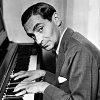
Irving Berlin
composer / conductor1888 - 1989

George Gershwin
composer / conductor1898 - 1937
Thankfully, fans of Joe Pass now have twelve more previously unreleased tracks to enjoy, in addition to the dozens of earlier Pablo discs featuring him. One can only wonder what additional treasures from other solo concerts by the late guitarist await release over the next few years.
Liner Notes copyright ? 2025 Ken Dryden.
Meditation: Solo Guitar can be purchased here.
Contact Ken Dryden at All About Jazz.
Ken began collecting jazz in 1972 and has been a jazz journalist since 1988.
Track Listing
Meditation; Shadow Waltz; Mood Indigo; More Than You Know; When Your Lover Has Gone; Everything Happens To Me; It's Alright With Me; I'll Never Be The Same; You Stepped Out Of A Dream; All The Things You Are; How Deep Is The Ocean; They Can't Take That Away From Me.
Personnel
Joe Pass
guitarAlbum information
Title: Meditation: Solo Guitar | Year Released: 2004 | Record Label: Pablo Records
Tags
Comments
PREVIOUS / NEXT
Support All About Jazz
 All About Jazz has been a pillar of jazz since 1995, championing it as an art form and, more importantly, supporting the musicians who make it. Our enduring commitment has made "AAJ" one of the most culturally important websites of its kind, read by hundreds of thousands of fans, musicians and industry figures every month.
All About Jazz has been a pillar of jazz since 1995, championing it as an art form and, more importantly, supporting the musicians who make it. Our enduring commitment has made "AAJ" one of the most culturally important websites of its kind, read by hundreds of thousands of fans, musicians and industry figures every month.







 Buy Now
Buy Now


